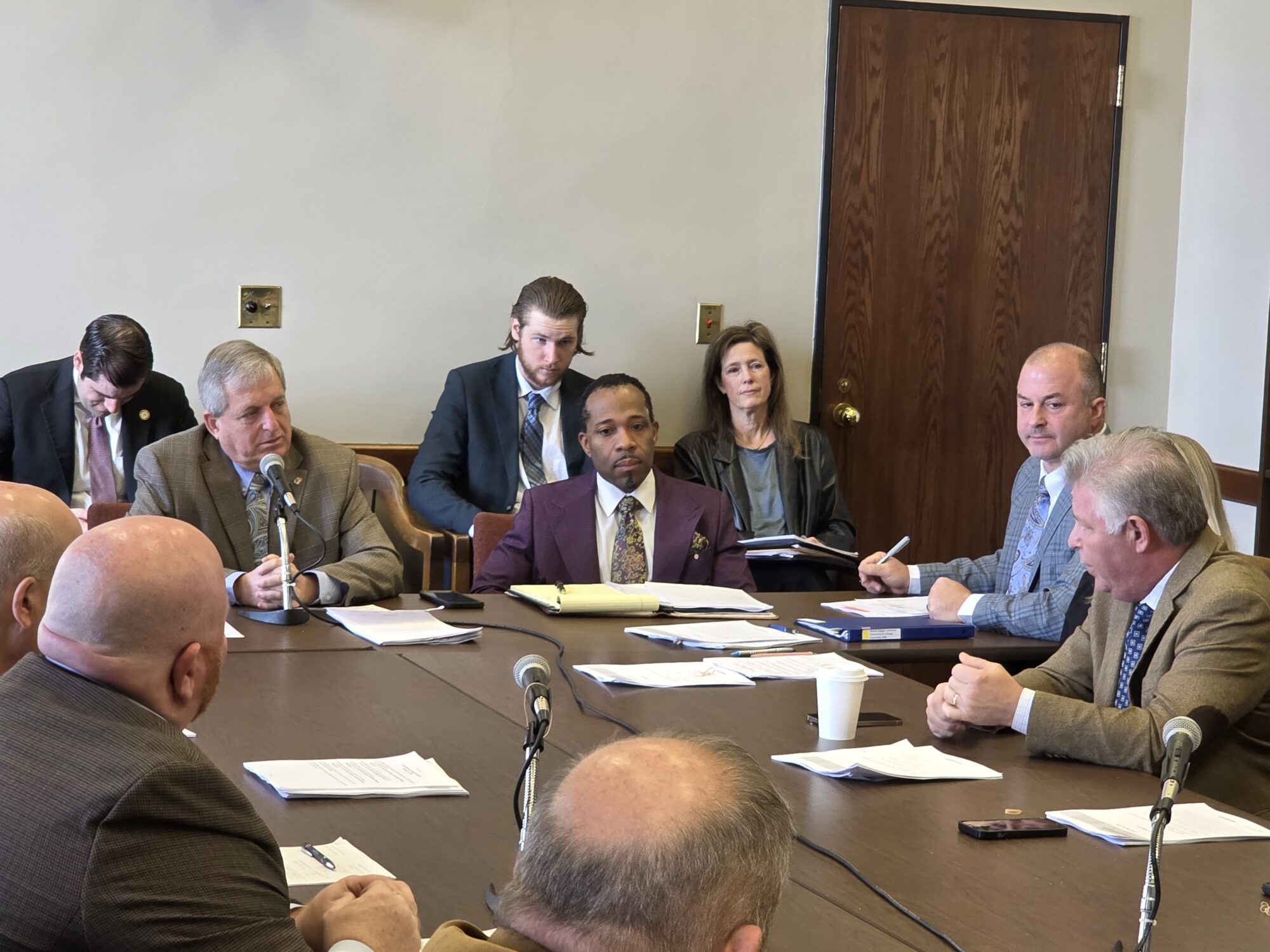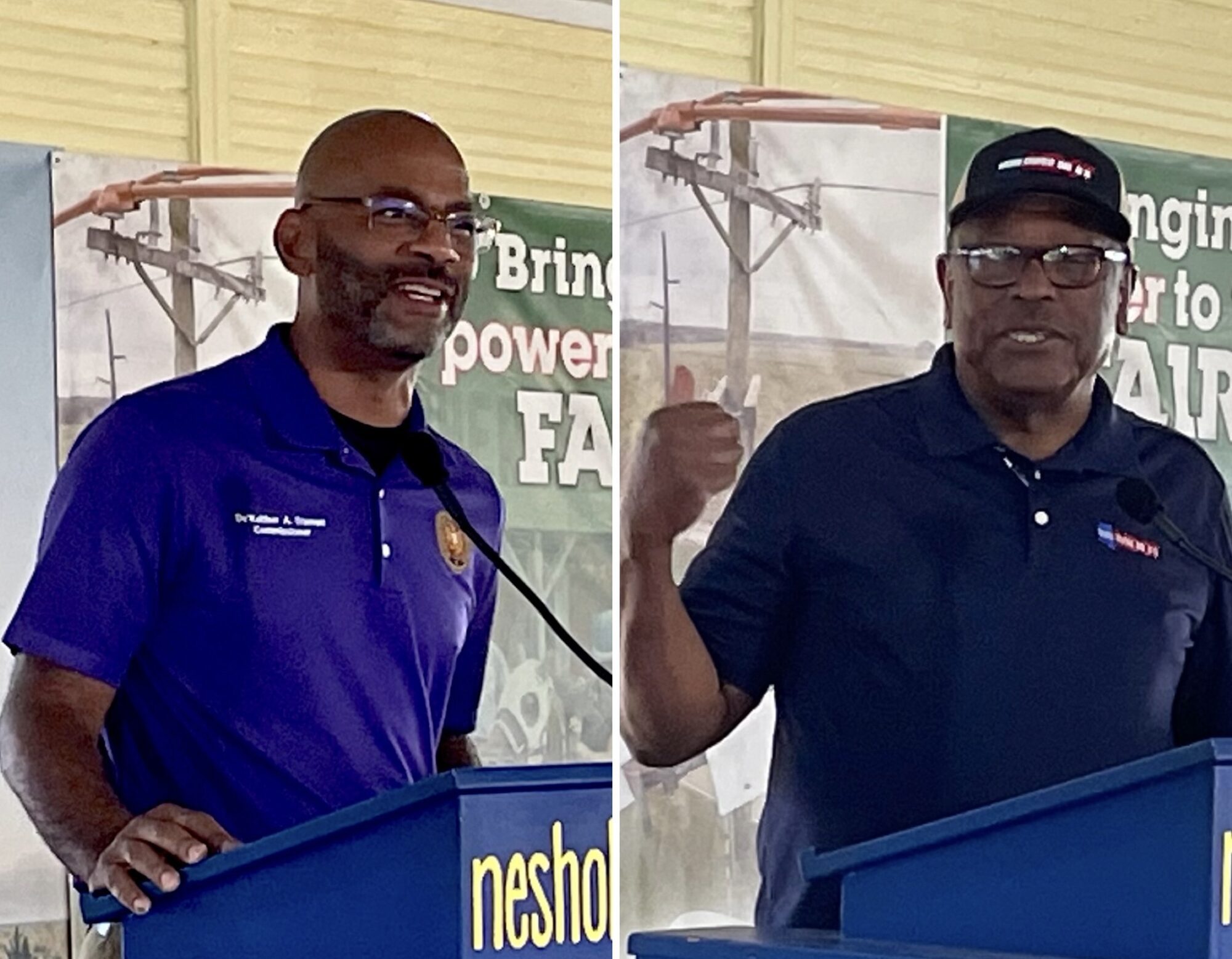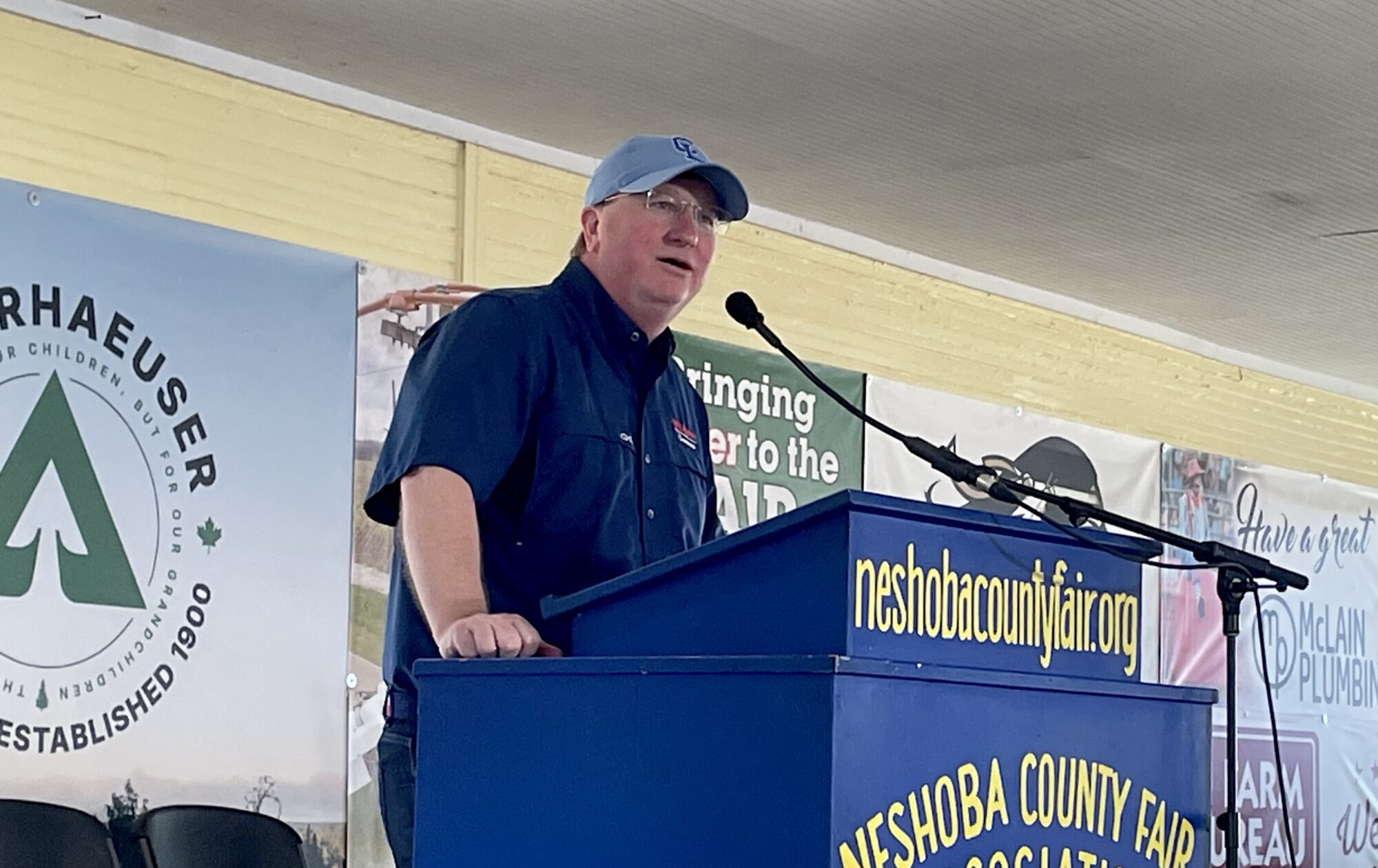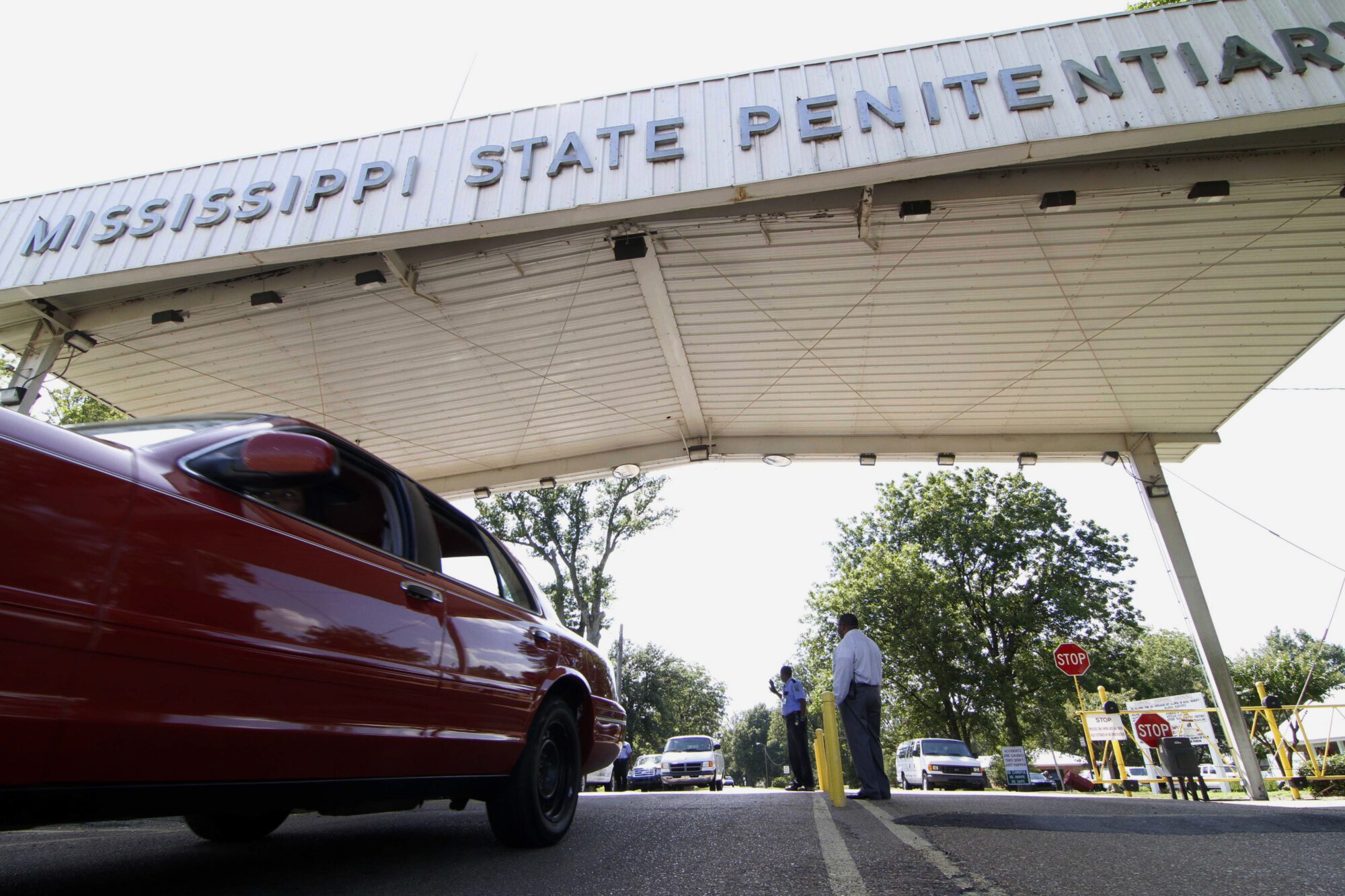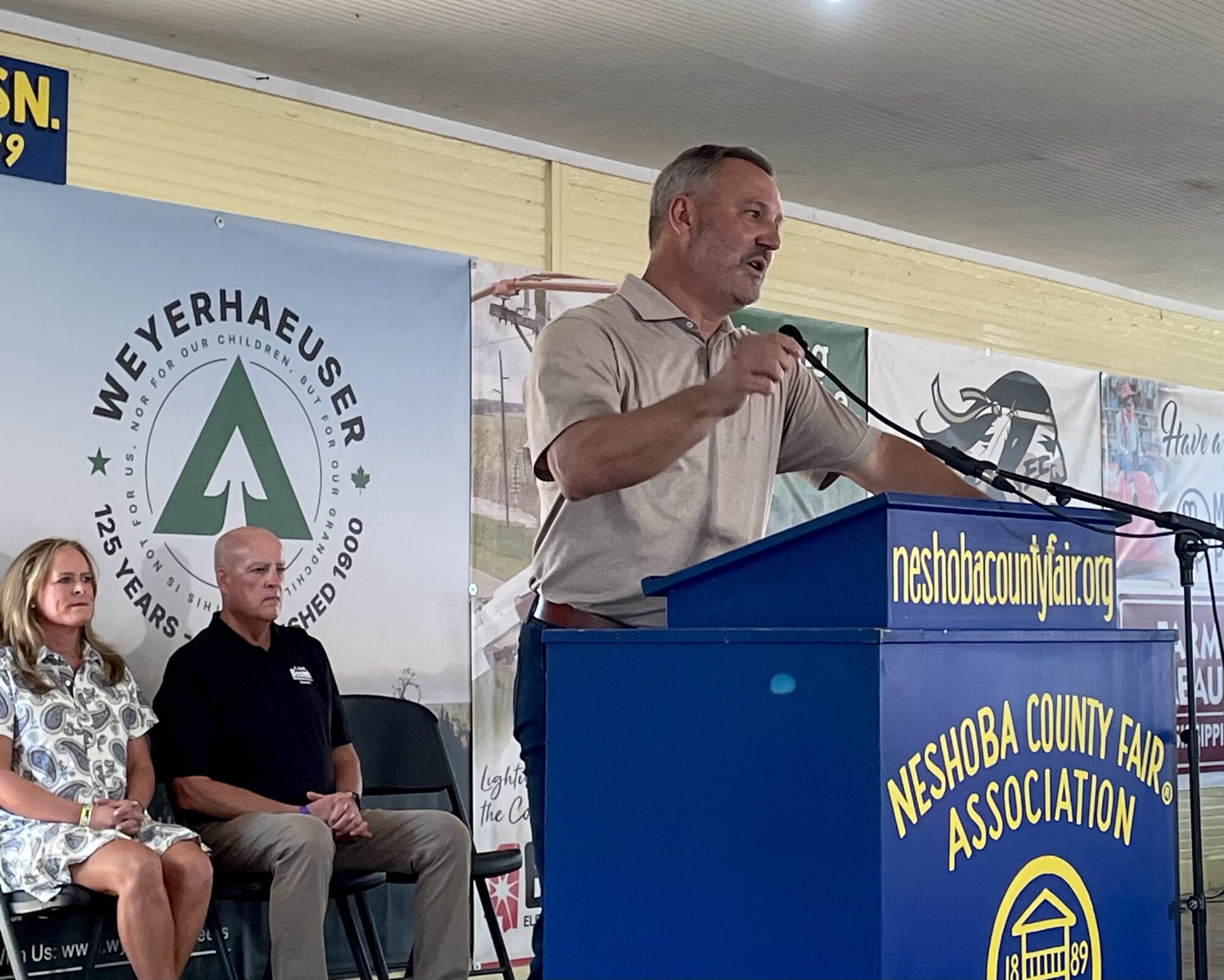
Speaker Jason White speaks at the 2025 Neshoba County Fair (Photo by Frank Corder)
- The Speaker said school consolidation will also be a goal of the 2026 legislative session. He also addressed concerns with cuts to Medicaid.
Legislation to expand school choice in the state of Mississippi is coming in the next legislative session. That was the promise made by Speaker of the House Jason White (R) during the Neshoba County Fair Thursday.
White said education freedom would be the chamber’s number on priority.
“Let me remind you, education freedom is a pillar in our adopted Republican Party Platform and has been highlighted by President Trump in his Make America Great Again agenda entitled ‘America First: Areturn to commonsense,’” White told fairgoers to applause.
He also promised the House will get to the core of the state’s issues “rather than passing surface-level policy.”
“The House will continue to focus our efforts on positioning for the next generation, not posturing for the next election,” White said.
Some accomplishments from the previous session outlined by White include the elimination of the income tax, which is being phased out, a 2 percent cut to the sales tax on groceries, a new funding mechanism to support the state’s infrastructure by way of a gas tax increase, and the beginning of efforts to stabilize the state employee retirement system. While some of those laws that went into effect this year may carry a Senate bill number, White said that all of those accomplishments were in the House’s original bill, HB 1.
“The process wasn’t always pretty, or pleasant, or easy, but changemaking policy hardly ever is and we believe building a brighter future for Mississippi is worth fighting for,” White added.
With the Trump administration bringing about the passage of an education freedom package that centers on school choice, he wants the state of Mississippi to join that effort to return the choice of a child’s education to those who pay the taxes – parents.
That means Mississippians can expect to see an education freedom bill introduced during the 2026 legislative session.
“We are committed to transforming the educational landscape in Mississippi to ensure that every child in our state has access to an education that caters to their unique needs and aspirations,” he said.
Through school choice, parents can determine the type of educational opportunity that best benefits their child, especially those with special needs. School choice can also allow children in economically disadvantaged areas to find the best education.
“Every child, regardless of their zip code, deserves a fair chance to succeed. As we examine and debate this topic, let us please be mindful that parents also happen to be taxpayers and they are the ones footing the bill. And parents know what’s best for their children,” White stated.
Opponents of school choice argue that it will negatively affect public school districts due to a decrease in funding. However, the Speaker pointed to the Legislature’s effort to adjust as proven by passage of the state’s new educational funding formula.
The topic of school consolidation was also raised at Neshoba. White said his intention is to work with the Mississippi Department of Education to cut the state’s current 130-plus school districts down to about 82, or one per county, over time.
On the topic of healthcare, White said the House and Senate will be challenged with deciding how to move through the cuts anticipated to SNAP and Medicaid as part of the “One Big, Beautiful Bill.”
“Here’s what we’re going to do, we’re going to embrace the current direction of our Congress in D.C. and our President,” White stated. “We have asked for this, we have voted for this and so we’re going find ways for Mississippi to live in that space and thrive in that space.”
While cuts are expected, Speaker White said the federal legislation includes the Rural Healthcare Program, which includes funds he expects Mississippi to be eligible to receive.
“There is no denying that we still have healthcare deficiencies in our state,” White said. “We have a lot of uninsured, some say as many as 200-250,000. A lot of rural hospitals are doing great now with the enhanced reimbursements, but even that stuff is affected going forward in the ‘one big beautiful bill.’”
The plan for the House is to find the best path forward, and that could include Medicaid and the Affordable Care Act, which is still in play.
“Forty states are in now, for better or worse,” White explained. “We’ve got to figure a way to bob and weave in that environment. It may not be expansion, it may be something totally different. They (Congress) may block grant Medicaid to all states.”
To shore up the state employee retirement system, White is still committed to finding a dedicated revenue stream. It could involve working to legalize mobile sports betting and using a portion of those proceeds for PERS. But if that proposal is unpopular, White said he’s willing to consider other methods outside of one time cash infusions previously proposed by the Senate because those could be impacted by the whims of politics.
“Maybe it’s a portion of our surplus each year, but we’re gonna find it,” White said. “We are dedicated to finding that in the House.”


